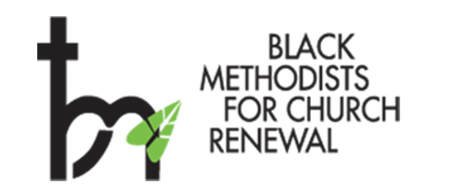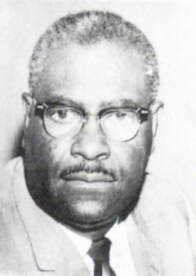HISTORY
On Saturday, August 19, 1967, the all-Black, segregated Central Jurisdiction of the Methodist Episcopal Church elected its 14th and final Episcopal leader, Bishop L. Scott Allen. This election and the ensuring service of consecration were the final acts to be performed by the jurisdiction. At midnight, that Saturday night, the Central Jurisdiction ceased to be, ending the period of open segregation of the races in the Methodist Episcopal Church. A sad chapter in Methodist history was now closed.
|
With the dissolution of the Central Jurisdiction a serious and nagging question remained for Black Methodists: Will there be a permanent place in the new United Methodist church for Black Methodists? The history of race relations within the Methodist Church has in many ways mirrored the history of race relations in American society. The question was important because it spoke to the historical reality that the Methodist Church had never accorded blacks equal status as Christian sisters and brothers. This was so—despite the tremendous contributions that Black Methodists had made to the church.
|
In 1967, many members of the now defunct Central Jurisdiction felt uncertainty about the status of Black Methodists in this new United Methodist Church. Groups of Black Methodists met frequently to discuss the problem of racial equality in their new denomination. Such a group was convened in Detroit at the East Grand Boulevard Methodist Church on Nov. 20-21, 1967. For this group of clergy and lay persons, the issue at hand was the question, “How do we ensure that there will be a permanent place for Blacks in the new United Methodist Church?” In Cincinnati, Ohio on February 6, 1968, a meeting was convened of Black Methodists from around the nation to answer this question.
This group developed a plan for lobbying and presenting resolutions to facilitate the creation of a Commission on Religion and Race at the 1968 General Conference. Out of this critical meeting, BMCR—Black Methodists for Church Renewal, Inc.—was formed. The charge of BMCR, titled “Findings of the Black Methodists for Church Renewal” was submitted to the General Conference later that 1968 February. A central component of this document was a section titled, “The Black Paper.” In this powerful section, the BMCR confessed their filings as Black Methodists and defined a new direction for themselves. To this day they have continued to define and refine directions for themselves and this denomination that have brought respect, growth, and renewed commitment to God and God’s purpose for The United Methodist Church.
BMCR continues to be a necessary force for change and accountability in the United Methodist Church today. This change and accountability spills over and benefits the Church’s global body. The tremendous need for Black leadership at the Episcopal and General Conference levels remains. The Church must be encouraged to maintain a global perspective, especially toward developing, African and Caribbean nations. The local church must be empowered with capable lay and clergy leadership. So much is still to be done.
Black Methodists for Church Renewal, our time under God is now!!!
This group developed a plan for lobbying and presenting resolutions to facilitate the creation of a Commission on Religion and Race at the 1968 General Conference. Out of this critical meeting, BMCR—Black Methodists for Church Renewal, Inc.—was formed. The charge of BMCR, titled “Findings of the Black Methodists for Church Renewal” was submitted to the General Conference later that 1968 February. A central component of this document was a section titled, “The Black Paper.” In this powerful section, the BMCR confessed their filings as Black Methodists and defined a new direction for themselves. To this day they have continued to define and refine directions for themselves and this denomination that have brought respect, growth, and renewed commitment to God and God’s purpose for The United Methodist Church.
BMCR continues to be a necessary force for change and accountability in the United Methodist Church today. This change and accountability spills over and benefits the Church’s global body. The tremendous need for Black leadership at the Episcopal and General Conference levels remains. The Church must be encouraged to maintain a global perspective, especially toward developing, African and Caribbean nations. The local church must be empowered with capable lay and clergy leadership. So much is still to be done.
Black Methodists for Church Renewal, our time under God is now!!!
Source: BMCRUMC
|
In Memoriam:
Rev. Dr. Maceo Pembroke, Sr. First National President of “Black Methodists for Church Renewal,” and Former Senior Pastor, St. Mark United Methodist Church, Chicago, Illinois
For nearly 30 years, Rev. Dr. Maceo D. Pembroke, Sr. served as pastor of St. Mark United Methodist Church in Chicago. Having come to St. Mark in 1947 as a student assistant, Dr. Pembroke served as the first national president of Black Methodists for Church Renewal. While pastor at St. Mark UMC, he laid the groundwork for the formation of the St. Mark Manor, a senior-citizen housing facility, presently located in the Chatham community. |
Rev. Dr. Maceo Pembroke, Sr.
|
Rev. Pembroke also served for a number of years on various United Methodist general boards and agencies, including the Board of Higher Education and Ministry, the General Conference on Finance and Administration, the Board of Ministry, and the Council on Finance and Administration of the Northern Illinois Conference.
A graduate of the University of California and Philander Smith College, he was heavily involved in civic and social work, including activities with Operation PUSH (Chicago). He graduated from Garrett Seminary in 1947 and was awarded an honorary degree from his alma mater in 1979. A trustee of Garrett-Evangelical, he was a key figure and leader in the founding and direction of CBE and, over the course of his career, inspired more than 30 young people to enter the ministry.
Dr. Pembroke was a renaissance man: pastor, teacher, mentor, Christian leader, civil-rights advocate, and social activist. Through his life and career, he was devoted to the mission of the church and an inspiration to colleagues and students. His life of service to the church and seminary were a model of integrity and devotion to the cause of theological education and service to the Black church and community.
A graduate of the University of California and Philander Smith College, he was heavily involved in civic and social work, including activities with Operation PUSH (Chicago). He graduated from Garrett Seminary in 1947 and was awarded an honorary degree from his alma mater in 1979. A trustee of Garrett-Evangelical, he was a key figure and leader in the founding and direction of CBE and, over the course of his career, inspired more than 30 young people to enter the ministry.
Dr. Pembroke was a renaissance man: pastor, teacher, mentor, Christian leader, civil-rights advocate, and social activist. Through his life and career, he was devoted to the mission of the church and an inspiration to colleagues and students. His life of service to the church and seminary were a model of integrity and devotion to the cause of theological education and service to the Black church and community.
Source: Center for the Church and the Black Experience

